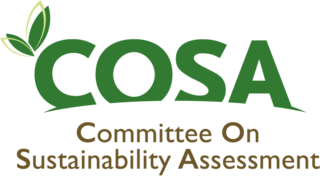
Biotechnology is a broad area of biology, involving the use of living systems and organisms to develop or make products. Depending on the tools and applications, it often overlaps with related scientific fields. In the late 20th and early 21st centuries, biotechnology has expanded to include new and diverse sciences, such as genomics, recombinant gene techniques, applied immunology, and development of pharmaceutical therapies and diagnostic tests.

Genetically modified maize (corn) is a genetically modified crop. Specific maize strains have been genetically engineered to express agriculturally-desirable traits, including resistance to pests and to herbicides. Maize strains with both traits are now in use in multiple countries. GM maize has also caused controversy with respect to possible health effects, impact on other insects and impact on other plants via gene flow. One strain, called Starlink, was approved only for animal feed in the US but was found in food, leading to a series of recalls starting in 2000.

The Technical University of Munich (TUM) is a research university with campuses in Munich, Garching, Freising-Weihenstephan, Heilbronn and Dover, Singapore. It is a member of TU9, an incorporated society of the largest and most notable German institutes of technology. TUM's alumni include 17 Nobel laureates, 18 Leibniz Prize winners and 22 IEEE Fellow Members.

Genetically modified crops are plants used in agriculture, the DNA of which has been modified using genetic engineering methods. In most cases, the aim is to introduce a new trait to the plant which does not occur naturally in the species. Examples in food crops include resistance to certain pests, diseases, environmental conditions, reduction of spoilage, resistance to chemical treatments, or improving the nutrient profile of the crop. Examples in non-food crops include production of pharmaceutical agents, biofuels, and other industrially useful goods, as well as for bioremediation.

Cornelis Pieter "Cees" Veerman is a retired Dutch politician of the Christian Democratic Appeal (CDA) party and economist.

Environmental policy is the commitment of an organization or government to the laws, regulations, and other policy mechanisms concerning environmental issues. These issues generally include air and water pollution, waste management, ecosystem management, maintenance of biodiversity, the management of natural resources, wildlife and endangered species. For example, concerning environmental policy, the implementation of an eco-energy-oriented policy at a global level to address the issues of global warming and climate changes could be addressed. Policies concerning energy or regulation of toxic substances including pesticides and many types of industrial waste are part of the topic of environmental policy. This policy can be deliberately taken to influence human activities and thereby prevent undesirable effects on the biophysical environment and natural resources, as well as to make sure that changes in the environment do not have unacceptable effects on humans.
Since the advent of genetic engineering in the 1970s, concerns have been raised about the dangers of the technology. Laws, regulations, and treaties were created in the years following to contain genetically modified organisms and prevent their escape. Nevertheless, there are several examples of failure to keep GM crops separate from conventional ones.
Biobased economy, bioeconomy or biotechonomy refers to economic activity involving the use of biotechnology in the production of (bio-based) goods, services, or energy from biological material as the primary resource base. An important aspect of the bioeconomy is understanding mechanisms and processes at the genetic, molecular, and genomic levels, and applying this understanding to creating or improving industrial processes, developing new products and services, and producing new energy.
The MON 810 corn is a genetically modified maize used around the world. It is a Zea mays line known as YieldGard from the company Monsanto. This plant is a genetically modified organism (GMO) designed to combat crop loss due to insects. There is an inserted gene in the DNA of MON810 which allows the plant to make a protein that harms insects that try to eat it. The inserted gene is from the Bacillus thuringiensis which produces the Bt protein that is poisonous to insects in the order Lepidoptera, including the European Corn Borer.

The Economics of Ecosystems and Biodiversity (TEEB) was a study led by Pavan Sukhdev from 2007 to 2011. It is an international initiative to draw attention to the global economic benefits of biodiversity. Its objective is to highlight the growing cost of biodiversity loss and ecosystem degradation and to draw together expertise from the fields of science, economics and policy to enable practical actions. TEEB aims to assess, communicate and mainstream the urgency of actions through its five deliverables—D0: science and economic foundations, policy costs and costs of inaction, D1: policy opportunities for national and international policy-makers, D2: decision support for local administrators, D3: business risks, opportunities and metrics and D4: citizen and consumer ownership.

A genetically modified soybean is a soybean that has had DNA introduced into it using genetic engineering techniques. In 1996 the first genetically modified soybean was introduced to the U.S. market, by Monsanto. In 2014, 90.7 million hectares of GM soy were planted worldwide, 82% of the total soy cultivation area.

The Committee on Sustainability Assessment (COSA) is a global consortium of development institutions that work collaboratively to advance the systematic and science-based measurement of sustainability in agriculture. COSA applies a pragmatic and collective approach for using scientific methods to develop indicators and tools to measure sustainability through performance monitoring, evaluation, and impact assessment. These sustainability measurements assess the distinct social, environmental and economic impacts of agricultural practices.
Although for many decades, it was customary to focus on GDP and other measures of national income, there has been growing interest in developing broad measures of economic well-being. National and international approaches include the Beyond GDP programme developed by the European Union, the Better Lives Compendium of Indicators developed by the OECD, as well as many alternative metrics of wellbeing or happiness. One of the earliest attempts to develop such an index at national level was Bhutan's Gross National Happiness Index and there are a now a number of similar projects ongoing around the world, including a project to develop for the UK an assessment of national well-being, commissioned by the Prime Minister David Cameron and led by the Office for National Statistics.

Genetic engineering in the European Union has varying degrees of regulation.
In cost–benefit analysis and social welfare economics, the term option value refers to the value that is placed on private willingness to pay for maintaining or preserving a public asset or service even if there is little or no likelihood of the individual actually ever using it. The concept is most commonly used in public policy assessment to justify continuing investment in parks, wildlife refuges and land conservation, as well as rail transportation facilities and services. It is also recognized as an element of the total economic value of environmental resources.
The European Union (EU) is considered by some to have the most extensive environmental laws of any international organisation. Its environmental policy is significantly intertwined with other international and national environmental policies. The environmental legislation of the European Union also has significant effects on those of its member states. The European Union's environmental legislation addresses issues such as acid rain, the thinning of the ozone layer, air quality, noise pollution, waste, water pollution and sustainable energy. The Institute for European Environmental Policy estimates the body of EU environmental law amounts to well over 500 Directives, Regulations and Decisions.

David Zilberman is an Israeli-American economist, professor and Robinson Chair in the Department of Agricultural and Resource Economics at the University of California, Berkeley. Zilberman has been a professor in the Agricultural and Resource Economics Department at UC Berkeley since 1979. His research has covered a range of fields including the economics of production technology and risk in agriculture, agricultural and environmental policy, marketing and more recently the economics of climate change, biofuel and biotechnology. He won the 2019 Wolf Prize in Agriculture, was the President of the Agricultural and Applied Economics Association (AAEA), and is a Fellow of the AAEA and Association of Environmental and Resource Economics. David is an avid blogger on the Berkeley Blog and a life-long Golden State Warriors fan.

Karl Aiginger is an Austrian economist. He was the head of the Austrian Institute of Economic Research (WIFO) between 2005 and 2016, he is a professor at the Vienna University of Economics and Business and an honorary professor at the Johannes Kepler University Linz. He was succeeded by Christoph Badelt as the head of WIFO in September 2016. He established and manages the lateral thinking platform Policy Crossover Center, an interdisciplinary discussion forum on European policy. As an author, he is widely held in libraries worldwide.
Genetically modified (GM) crops have been commercially cultivated in four African countries; South Africa, Burkina Faso, Egypt and Sudan. Beginning in 1998, South Africa is the major grower of GM crops, with Burkina Faso and Egypt starting in 2008. Sudan grew GM cotton in 2012. Other countries, with the aid of international governments and foundation, are conducting trials and research on crops important for Africa. Crops under research for use in Africa include cotton, maize, cassava, cowpea, sorgum, potato, banana, sweet potato, sugar cane, coconut, squash and grape. As well as disease, insect and virus resistance some of the research projects focus on traits particularly crucial for Africa like drought resistance and biofortification.
Digital agriculture refers to tools that digitally collect, store, analyze, and share electronic data and/or information along the agricultural value chain. Other definitions, such as those from the United Nations Project Breakthrough, Cornell University, and Purdue University, also emphasize the role of digital technology in the optimization of food systems.









